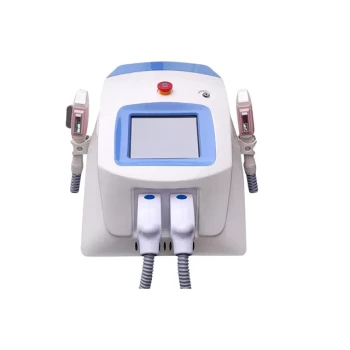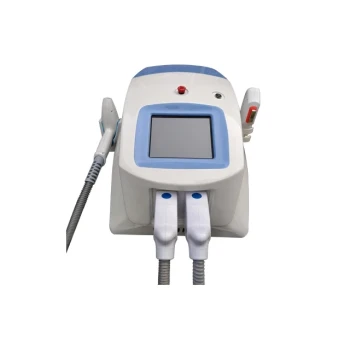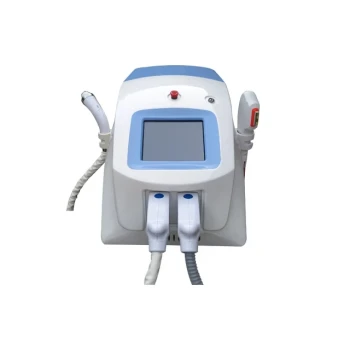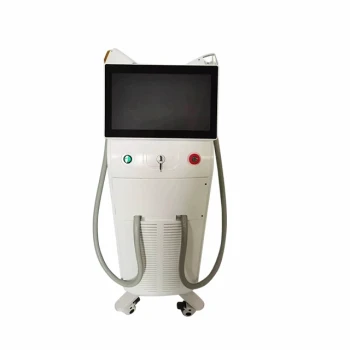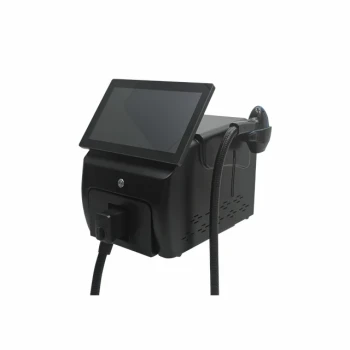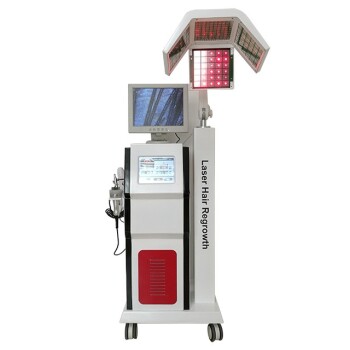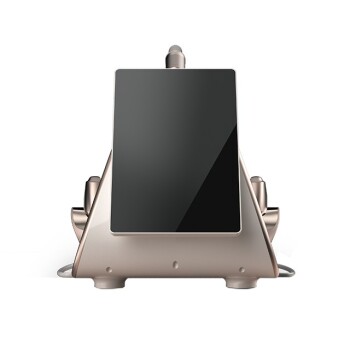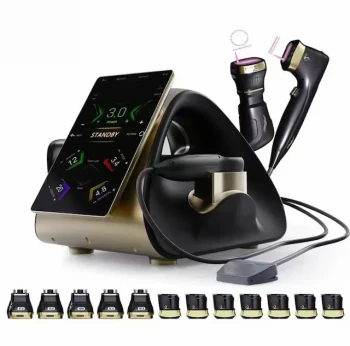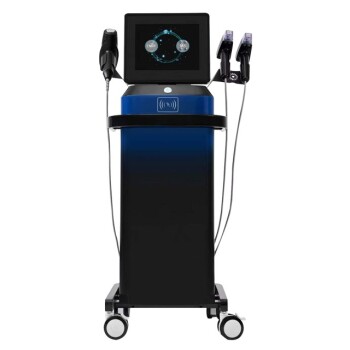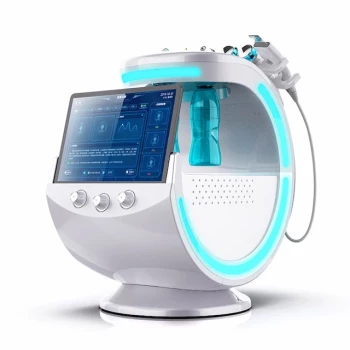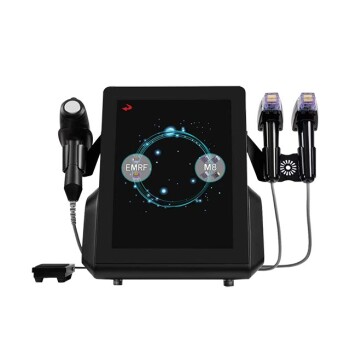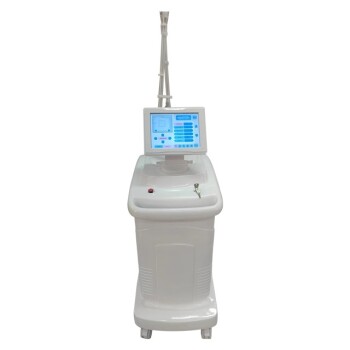In short, IPL (Intense Pulsed Light) hair removal is not suitable for everyone. Individuals with light-colored hair, dark skin tones, certain medical conditions, those taking photosensitizing medications, and pregnant individuals should avoid the treatment due to risks of ineffectiveness or adverse skin reactions.
The suitability of IPL hinges on a simple principle: the technology requires a dark target (melanin in the hair) against a light background (the skin). When this contrast is low, or when the skin is compromised, the treatment becomes either ineffective or unsafe.

The Core Principle: Why Contrast is King
To understand who isn't a candidate for IPL, you must first understand how it works. IPL is not a true laser but a device that emits a broad spectrum of light.
How IPL Targets Hair
The light energy from an IPL device is absorbed by melanin, the pigment that gives hair its color. This light energy converts to heat, which travels down the hair shaft to damage the follicle, inhibiting future growth.
This process, called selective photothermolysis, relies entirely on the hair having enough melanin to absorb the light and the surrounding skin having less melanin, so it remains undamaged.
Key Factors That Make You Unsuitable for IPL
If any of the following factors apply to you, IPL is likely not the right choice. Proceeding can lead to poor results, wasted money, or significant skin damage.
The Hair and Skin Color Mismatch
- Light-Colored Hair: Because IPL targets melanin, it is ineffective on hair that lacks pigment. This includes blonde, red, grey, or white hair. The light has no target to absorb into, so the follicle is not heated or damaged.
- Dark Skin Tones: Individuals with Fitzpatrick skin types V and VI (naturally dark brown to black skin) have a high concentration of melanin in their epidermis. The IPL device cannot distinguish between the melanin in the hair and the melanin in the skin, leading to a high risk of burns, blistering, scarring, or hyperpigmentation.
Medical and Skin Health Contraindications
- Pregnancy or Breastfeeding: While no studies have proven direct harm, the hormonal fluctuations during this time can make skin more sensitive and results unpredictable. Due to a lack of safety data, it is a standard medical precaution to avoid treatment.
- Photosensitizing Medications: Certain drugs dramatically increase the skin's sensitivity to light. Treating skin in this state can cause severe burns. The most well-known is Isotretinoin (Accutane/Roaccutane), but many antibiotics, retinoids, and St. John's Wort can also cause photosensitivity.
- History of Keloid Scarring: Keloids are an overgrowth of scar tissue from an aggressive healing response. Since IPL creates a controlled thermal injury in the skin, it can trigger keloid formation in susceptible individuals.
- Active Skin Conditions: You should never perform IPL over areas with active infections, acne, eczema, psoriasis, or open wounds. The skin barrier is already compromised, and the intense light and heat will only worsen the condition.
- Certain Autoimmune Disorders: Conditions like Lupus can involve photosensitivity, where light exposure can trigger a systemic flare-up of the disease.
Understanding the Key Trade-off: Recent Tanning
Even if you are otherwise a perfect candidate, one temporary factor can immediately make you unsuitable for treatment.
The Danger of a Tan
Tanning, whether from the sun or a tanning bed, increases the amount of melanin in your skin. As explained before, this eliminates the safe contrast between your skin and hair.
Performing IPL on tanned skin carries the same risks as treating a naturally dark skin tone: a high likelihood of burns and pigmentation issues. Most reputable clinics will refuse to treat a client until their tan has completely faded, which can take several weeks. This is a non-negotiable safety rule.
Making the Right Choice for Your Goal
To determine if IPL is right for you, a consultation with a qualified dermatologist or licensed technician is essential. However, you can use these guidelines for a preliminary assessment.
- If your primary focus is safety with light hair or dark skin: IPL is not a suitable technology for you; investigate alternatives like electrolysis, which does not rely on pigment.
- If you are taking medication or have a health condition: You must consult your doctor before considering any light-based hair removal treatment to clear you medically.
- If you have a tan or use self-tanner: You must wait until your skin has returned to its natural, baseline color before proceeding with a safe IPL treatment.
- If you have dark hair and light skin with no contraindications: You are likely an ideal candidate, but a professional patch test is still the crucial next step.
Ultimately, a thorough and honest assessment of your health and skin type is the definitive step toward achieving your goals safely and effectively.
Summary Table:
| Factor | Reason for Unsuitability |
|---|---|
| Light Hair (Blonde, Red, Grey) | Light lacks melanin; IPL cannot target the follicle. |
| Dark Skin Tones (Fitzpatrick V-VI) | High skin melanin increases burn and scarring risk. |
| Pregnancy/Breastfeeding | Hormonal changes increase skin sensitivity; safety data is limited. |
| Photosensitizing Medications | Drugs like Accutane increase risk of severe burns. |
| Active Tan | Elevated skin melanin eliminates safe contrast for treatment. |
| History of Keloid Scarring | IPL's thermal injury can trigger excessive scar tissue. |
| Active Skin Conditions (Eczema, Psoriasis) | Compromised skin barrier can worsen with light/heat exposure. |
Unsure if IPL is right for your clients? BELIS specializes in professional medical aesthetic equipment, providing advanced, safe, and effective solutions for medical aesthetics clinics and premium beauty salons. Our experts can help you select the right technology for your client base and ensure optimal treatment outcomes. Contact our specialists today for a personalized consultation!
Visual Guide
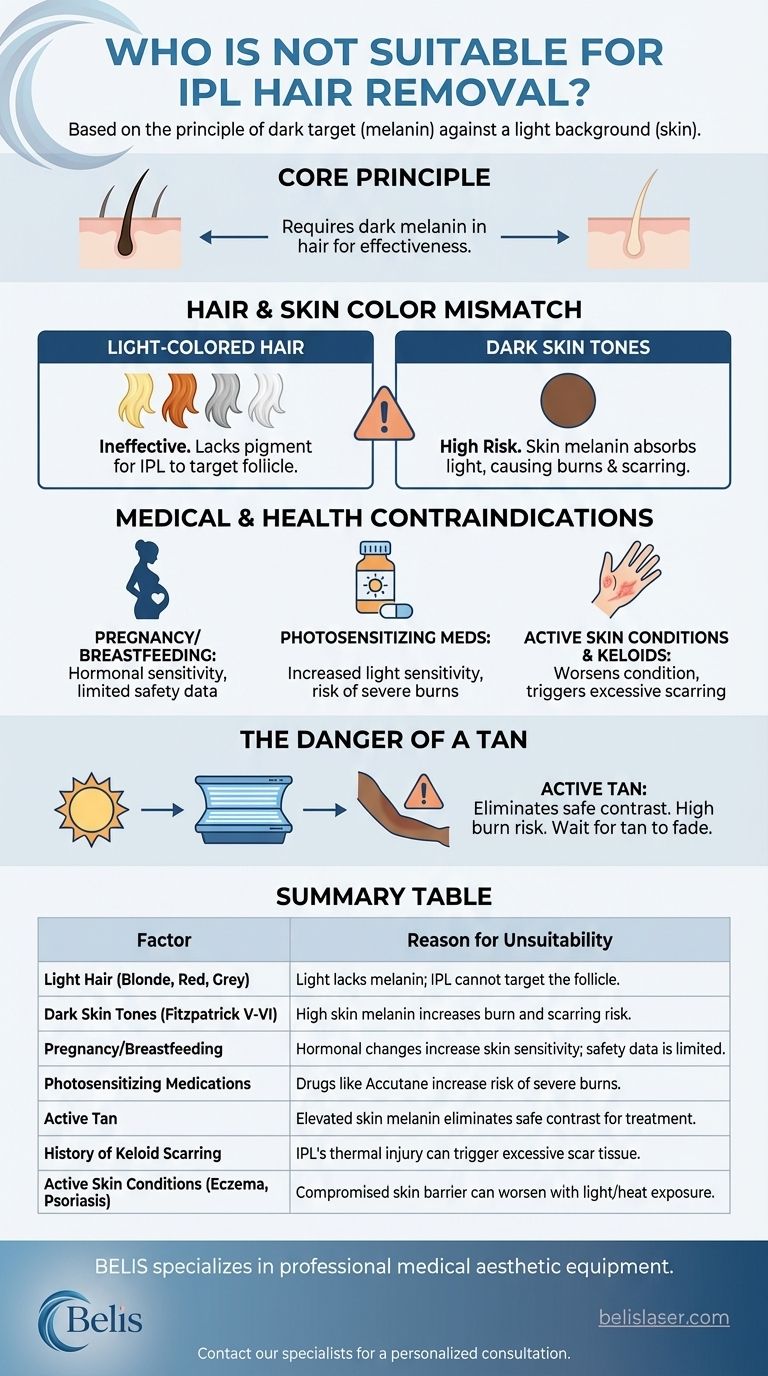
Related Products
- IPL SHR Hair Removal Machine for Permanent Hair Removal
- Clinic Use IPL and SHR Hair Removal Machine with Nd Yag Laser Tattoo Removal
- IPL SHR+Radio frecuency machine
- Clinic Diode Laser Hair Removal Machine with SHR and Trilaser Technology
- Diode Tri Laser Hair Removal Machine for Clinic Use
People Also Ask
- Under what conditions or for whom is IPL hair removal not recommended? 7 Critical Contraindications You Need to Know
- What factors determine the regulation of IPL energy density? Mastering Fluence for Safe Hair Removal
- What are the pre-care instructions to follow before a Super Hair Removal (SHR) session? Prepare for Flawless Results
- Does IPL have risks? How to Ensure a Safe and Effective Treatment
- What is the complementary role of IPL when used with lasers for hair removal in Asian populations? Maximize Your Results
- How do optical filters in Intense Pulsed Light (IPL) systems optimize the hair removal process? Master Precision Care
- What do dermatologists say about IPL? The Truth About Safety and Effectiveness
- What is the purpose of precisely adjusting the pulse duration in IPL? Optimize Safety and Hair Removal Efficiency
